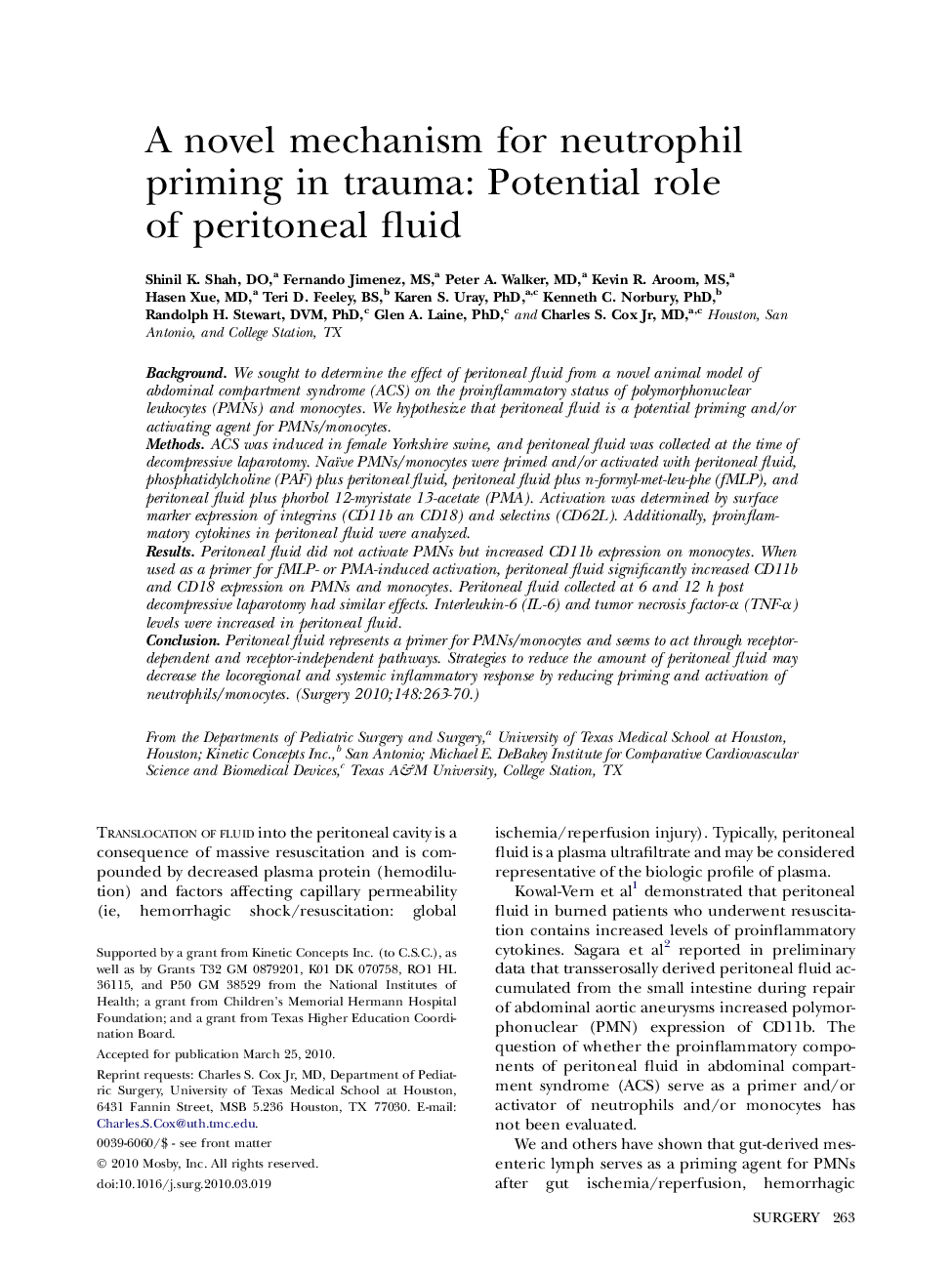| Article ID | Journal | Published Year | Pages | File Type |
|---|---|---|---|---|
| 4308524 | Surgery | 2010 | 8 Pages |
BackgroundWe sought to determine the effect of peritoneal fluid from a novel animal model of abdominal compartment syndrome (ACS) on the proinflammatory status of polymorphonuclear leukocytes (PMNs) and monocytes. We hypothesize that peritoneal fluid is a potential priming and/or activating agent for PMNs/monocytes.MethodsACS was induced in female Yorkshire swine, and peritoneal fluid was collected at the time of decompressive laparotomy. Naïve PMNs/monocytes were primed and/or activated with peritoneal fluid, phosphatidylcholine (PAF) plus peritoneal fluid, peritoneal fluid plus n-formyl-met-leu-phe (fMLP), and peritoneal fluid plus phorbol 12-myristate 13-acetate (PMA). Activation was determined by surface marker expression of integrins (CD11b an CD18) and selectins (CD62L). Additionally, proinflammatory cytokines in peritoneal fluid were analyzed.ResultsPeritoneal fluid did not activate PMNs but increased CD11b expression on monocytes. When used as a primer for fMLP- or PMA-induced activation, peritoneal fluid significantly increased CD11b and CD18 expression on PMNs and monocytes. Peritoneal fluid collected at 6 and 12 h post decompressive laparotomy had similar effects. Interleukin-6 (IL-6) and tumor necrosis factor-α (TNF-α) levels were increased in peritoneal fluid.ConclusionPeritoneal fluid represents a primer for PMNs/monocytes and seems to act through receptor-dependent and receptor-independent pathways. Strategies to reduce the amount of peritoneal fluid may decrease the locoregional and systemic inflammatory response by reducing priming and activation of neutrophils/monocytes.
